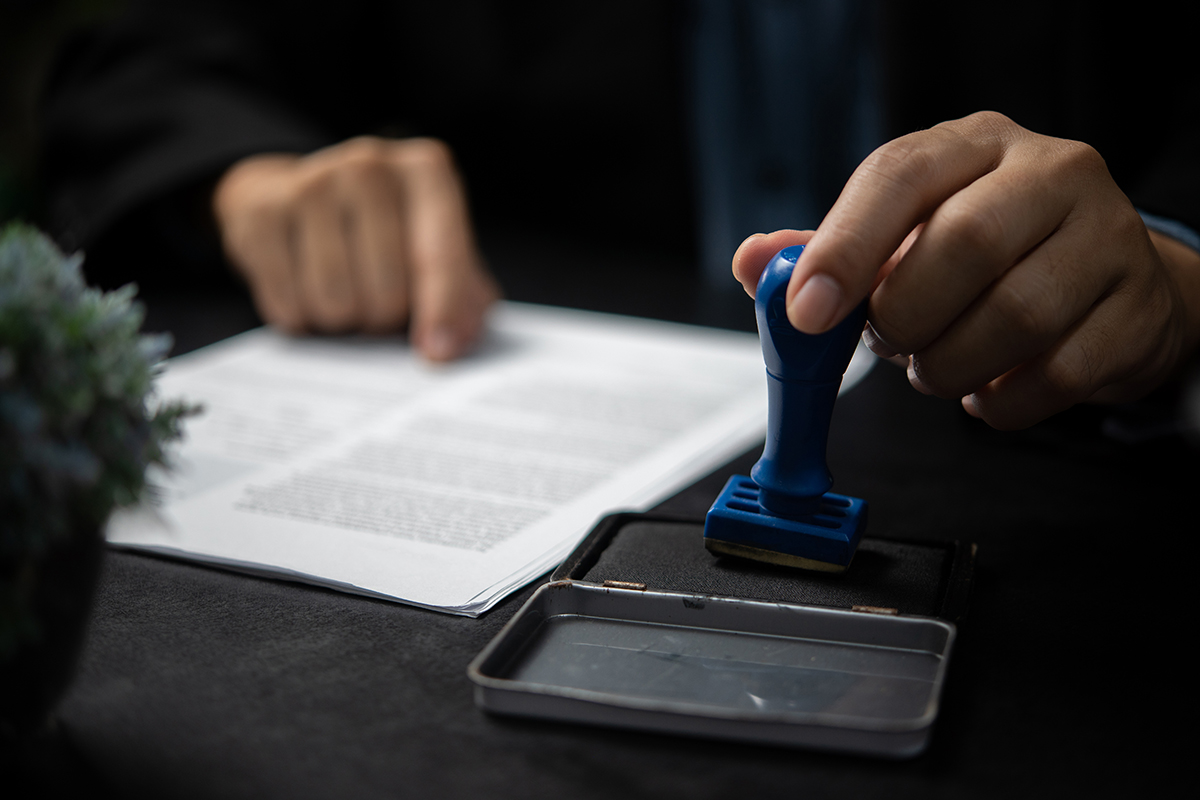Your child may sometimes have to travel in your absence and the company of another individual. However, as you are their legal guardian responsible for their safety, it is necessary to temporarily transfer this responsibility to the accompanying adult in writing. This can be done through an authorization letter. Such a letter indicates that as the parent or legal guardian, you consent to your child traveling with the designated guardian and trust the person to ensure the minor’s safety and well-being.
This article comprehensively discusses how an authorization letter functions when permitting a minor to travel with another adult in your absence. To achieve this, the article defines the letter, its use cases, essential components, and tips to assist you in enhancing its effectiveness.
What is an Authorization Letter to Travel with a Minor
An authorization letter to travel with a minor is a formal document that legally appoints a designated individual to travel with a child below the age of 18.
It acts as evidence that you, as the parent or legal custodian, have consented to your child traveling with the specified individual or group. The letter contains explicit authorization and travel details such as the destination, the purpose of the journey, and the date of the trip. It should be presented to authorities at border checks and airline agencies to ensure each trip for minors is authorized. This might include immigration officials, airline personnel, or border control officers.
Free Templates






When You May Need an Authorization Letter
You can utilize the letter of authority in many scenarios where your child has to travel without you. Here are circumstances under which you can issue an authorization letter to ensure that your child is protected:
Traveling with relatives or friends
There are instances when your child has to travel with your siblings, parents, aunts, uncles, or close family friends, be it for holiday trips or vacations. Despite the close relationship and trust between you and your relatives or friends, they do not have the legal authority to travel with your child or children unless you explicitly consent to it. An authorization letter will thus be helpful in such cases as communication and evidence of your intention.
School trips or group travel
Children will often go on school field trips for learning or fun activities. In such instances, as the parent or legal guardian, you must grant the school or teacher permission to travel with your child through a letter of authority. This way, it is clear that the school or teacher in charge is responsible for your child’s safety.
Divorced or separated parents
In cases where you and your partner are separated, divorced, or share custody, each parent must consent for the other to travel with the child. This authorization can be given through this letter to prevent disputes and ensure that both parents are aware of the trip and approve of the travel arrangements.
Traveling abroad with one parent
An authorization letter must be given if your partner travels with your child to another country. This is because many countries have immigration and entry regulations for children traveling with only one parent. In such cases, the letter is considered proof that the absent parent is informed and authorizes the trip. This prevents conflicts and delays at the border.
Traveling with a legal guardian
If you are the legal guardian and not the biological parent, you must have an authorization letter with you when traveling with a minor. This letter specifies that you are the legal guardian and are authorized to travel and act in a parental capacity during the trip.
How to Write an Authorization Letter
The information you include in the authorization letter should reflect your specific situation. It should grant explicit consent and provide specific travel details. To achieve this, a standard letter will have the following components:
Your Information as the parent or legal guardian
At the beginning of the letter, include your full name, valid address, and contact details (phone number and email address). Additionally, this section should state your relationship with the child. This information establishes your identity, your role in granting the authority and makes it easy for authorities to contact you if necessary.
Details of the designated adult/guardian accompanying the child
This component provides the full name, relationship to the minor, date of birth, address, and contact information of the person who will be traveling with the child. This individual could be a family member, friend, or designated guardian. This information identifies the designated adult to prevent confusion or mistaken identities.
Clear and specific travel details
Specify the travel details, including the destination, purpose, mode of transportation, and the dates and destinations of the trip, including departure and return dates. You can also indicate the flight numbers, accommodation details, and any other relevant travel plans. This information is crucial for the authorities to verify the legitimacy of the trip.
Duration of authorization and its limitations
Indicate the duration for which the authorization is valid. This could be for the specific dates of the trip or a broader time frame if the child will be traveling with the authorized individual on multiple occasions. If there are limitations such as the number of trips, geographic regions, or if it should be a single trip, be sure to specify this. This duration makes certain that the designated adult’s authorization is in line with your intentions.
Statement of consent and approval
The letter should also include a statement that explicitly grants the designated individual the authority and approval to travel with your minor child. Use language that clearly conveys your intent, demonstrates trust in the designated adult, and emphasizes that they are responsible for the child’s safety and well-being.
Closing
The last component is concise closing that expresses gratitude to the recipient for their cooperation and assistance in ensuring your child’s safe travel and honoring your request. After this appreciation, end the letter with a courteous closing, such as “Sincerely” or “Best regards,” followed by your printed name below your signature. You can also incorporate your contact details in case the recipient has any queries or concerns.






Tips for a Successful Authorization Letter
Writing an effective authorization letter for traveling with a minor demands careful consideration and attention to detail. This is because requirements can differ based on your location, the destination, and the specific authorities involved.
To help you create a letter that is both effective and widely accepted, here are some valuable tips:
Be clear and specific
Clearly state the purpose of the letter, the identities of the parties involved, and the travel details. Include specific details such as the destination, mode of transportation, departure, and return dates to avoid any confusion.
Customize the letter
Tailor the letter to reflect your specific circumstances. Therefore, ensure to provide complete details about the child, the parties involved, and the trip itself to make the letter more personalized and effective. Also, include the precise dates of the journey.
Be concise
Keep your letter straightforward, concise, and to the point. Avoid unnecessary information that does not directly relate to the letter’s main purpose.
Use professional language
Use language that leaves no room for ambiguity. Maintain a formal and professional tone throughout the letter. Avoid slang or informal language that may tarnish the authenticity of the letter of authority.
Confirm notarization requirements
Research the specific legal requirements for authorization letters to travel with a minor in your jurisdiction and the destination country. If the destination country or authorities require notarization, consider having the letter authenticated by a certified notary public to enhance its legal validity.
Review and proofread
Thoroughly proofread the letter to eliminate any spelling or grammatical errors. Additionally, double-check for accuracy to prevent confusion or delays. A well-written letter conveys competence and reliability.
Keep a copy
Make a copy of the signed and dated letter for your records. These copies might be necessary for future reference or in the event of any issues arising.
Final Thoughts
An authorization letter empowers another individual or group to assume the responsibility of caring for and protecting your child as they travel in your absence. This letter serves as formal proof of consent, providing specific travel details and permissions to present to airlines and border authorities. It demonstrates that you, as the parent or legal guardian, approved the trip. Whether it is a family trip, a school outing, or an international journey, the authorization letter reassures all parties and contributes to a seamless travel experience for the minor. Ultimately, the letter’s effectiveness lies in its clarity, specificity, and compliance with legal requirements. Thus, it is vital to tailor the content to your specific situation, as requirements can vary across jurisdictions and destinations.









